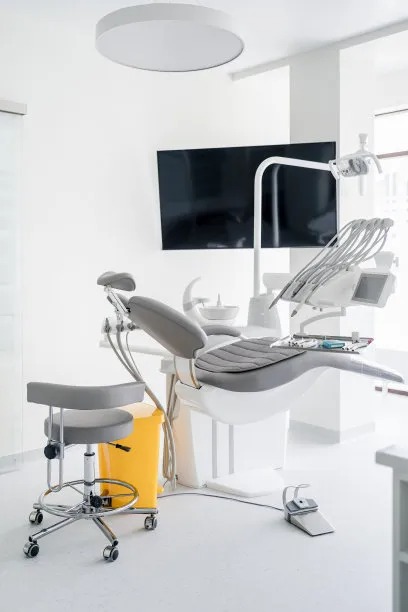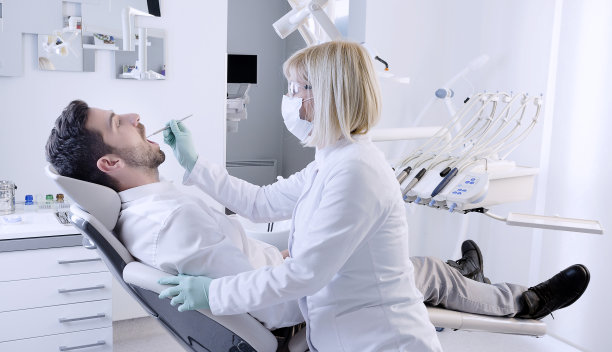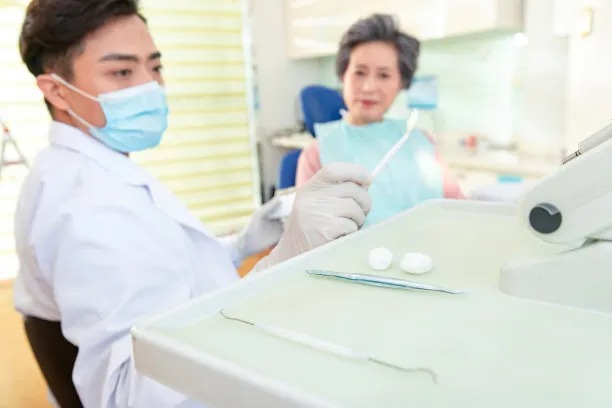Summary: When preparing for a dental filling appointment, its essential to take certain precautions both before and after the procedure to ensure optimal oral health and recovery. This article outlines four key areas of focus: understanding the procedure, maintaining oral hygiene, managing post-procedure care, and recognizing potential complications. By following these guidelines, patients can enhance their recovery experience and support their overall dental health for the long term.
1. Understanding the Dental Filling Procedure

Before your dental filling appointment, it鈥檚 critical to understand what the procedure entails. Familiarizing yourself with the steps involved can help ease any anxiety or fear you may have. Dentists typically perform fillings to treat cavities, repair cracked teeth, or restore functionality to damaged teeth. Knowing this can shift your perspective from viewing the appointment as a dreaded task to seeing it as an opportunity for improved oral health.
Discussing your treatment options with your dentist can also enhance your understanding. There are various materials used for fillings, such as composite resin, amalgam, or ceramics. Each material has its benefits and drawbacks, and being informed can help in making the right decision for your dental needs.
Additionally, validating any necessary preparations, like medication adjustments and dietary considerations, will further inform your approach to the appointment. Engaging in a thorough consultation will lead to a clear pathway for your treatment.
2. Maintaining Oral Hygiene Before the Appointment
Maintaining excellent oral hygiene leading up to your dental filling appointment is paramount. Brush your teeth at least twice daily and floss regularly to remove any food particles and plaque from between your teeth. A clean mouth not only promotes better healing post-filling but can also contribute to easier procedures, as your dentist will have a clearer view of your oral landscape.
It鈥檚 advisable to minimize sugary and acidic foods in the days leading to the appointment. These foods can exacerbate tooth decay and caries, which might lead to complications during filling. Instead, focus on a balanced diet that strengthens teeth, incorporating fruits, vegetables, and dairy products rich in calcium.
Another critical aspect is maintaining regular hydration. Staying hydrated is not just good for your overall health; it also promotes saliva production, which has natural antibacterial properties that protect your teeth and gums from decay.
3. Managing Post-Procedure Care Effectively
After receiving a dental filling, managing your post-procedure care is vital for optimal recovery. Initially, it鈥檚 important to avoid consuming hot or cold foods and beverages, as these can cause discomfort due to sensitivity. Opt for soft and lukewarm foods during the first 24 hours post-filling to allow your mouth time to adjust.
Pain management should also be a priority. Your dentist will likely prescribe or recommend over-the-counter pain relief to help you manage any discomfort after the procedure. Taking these medications as directed will help ease any soreness while promoting healing.
Moreover, observing any specific care instructions given by your dentist is crucial. This may involve avoiding certain foods or activities, such as chewing gum or using tobacco products, for a specified recovery duration. Following these guidelines ensures your filling sets properly and reduces the risk of complications.
4. Recognizing Complications and When to Seek Help
Being aware of potential complications post-filling is fundamental for your recovery. Common symptoms, such as prolonged sensitivity, pain, or swelling, may indicate that something is not right. If you experience persistent discomfort that doesn鈥檛 subside within a few days, it鈥檚 crucial to contact your dentist for further evaluation.
Additionally, watch for signs of an allergic reaction, such as itching or swelling in your mouth. Some patients may react adversely to the materials used in fillings, and timely intervention can prevent more significant issues.
Finally, maintaining regular dental check-ups after your filling is essential. Routine visits allow your dentist to monitor your oral health and identify any potential issues early on. Ensure that you communicate any concerns regarding your fill to your dental care team during these appointments.
Summary:
In conclusion, taking essential precautions before and after your dental filling appointment significantly impacts your overall oral health and recovery experience. By understanding the procedure, maintaining proper hygiene, managing post-care effectively, and recognizing potential complications, you can ensure a smoother and less stressful experience. Your commitment to these practices fosters a healthy smile and promotes long-lasting dental well-being.
This article is compiled by Vickong Dental and the content is for reference only.
Vickong Dental
Vickong Dental is a large medical group established in Hong Kong in 2008 by professors from well-known medical universities in Guangdong and Hong Kong, as well as medical doctors from key national '985' universities (including Master's supervisors and senior professors). The chain of branches brings together expert dentists with PhDs and Master's degrees from Hong Kong and Mainland China, committed to providing high-quality dental treatment.
"Vickong Dental Practices the University Motto of 'Healing and Serving Society,' with a Stable Operation for Sixteen Years. It Has Been honored with Hong Kong Enterprise Leaders's Choice,' and is a Global Trusted Implant Center for the Nobel Implant System. Recommended by Hong Kong Metro Broadcast and Guangdong Television, it Serves Customers from Over Thirty Countries and Regions, Gaining the Trust and Favor of Citizens from the Guangdong-Hong Kong-Macau Greater Bay Area and Surrounding Cities.

Thousands of customers' unanimous praise
The most recognized and highly recommended dental service by customers in the Guangdong-Hong Kong-Macau Greater Bay Area
We Ensure You Receive Detailed Care and Attention Here
Hong Kong standards, Shenzhen prices, Your Trusted English-speaking dentists

Vickong Dental Medical-Grade Instrument Disinfection Process
Vickong Dental Medical-Grade Instrument Disinfection Process

Vickong Dental Chain: A Warm and Comfortable Environment for Treatment






Appointment Hours

Q&A
Why choose Vickong Dental?
Vickong Dental practices the university motto 「Medicine to Benefit Society」, with each branch bringing together highly qualified dentists with doctoral and master’s degrees from Hong Kong and the Mainland, and has maintained seventeen years of steady operation。Recipient of 「2024 Hong Kong Enterprise Leaders Brand」, 「2025 Hong Kong Enterprise Leaders Brand」, a Nobel Biocare Global Trusted Implant Center, and a brand recommended by Metro Radio Hong Kong and Guangdong TV。
To date, we have served customers from more than thirty countries and regions,earning exceptionally high word-of-mouth recognition and trusted recommendations from residents across the Guangdong-Hong Kong-Macao Greater Bay Area and surrounding cities
We have eight major branches in Zhuhai、Shenzhen,and a consultation and service assurance center in Hong Kong,so you can book a free consultation at any time for any questions,which is very reassuring.
If I do not accept the quotation after the CT scan, will I be charged??
No! As long as the actual treatment has not started, you will not be charged any fees.
Will there be any additional charges during the treatment process?
No, there won’t be any additional charges. Before treatment begins, we will clearly explain the treatment plan and its corresponding fees. Only after the patient agrees and signs the consent form will we proceed with the dental service.
Can I pay in Hong Kong dollars?
Yes. Vickong Dental accepts payment in Hong Kong dollars. The amount will be converted based on the exchange rate of the day, and the applicable rate will be clearly communicated to you in advance.
Can I reschedule my appointment at any time?
Yes. Please contact us via **WeChat** or **WhatsApp** as early as possible, providing your original appointment time and details, along with your preferred new date and time slot for rescheduling.













